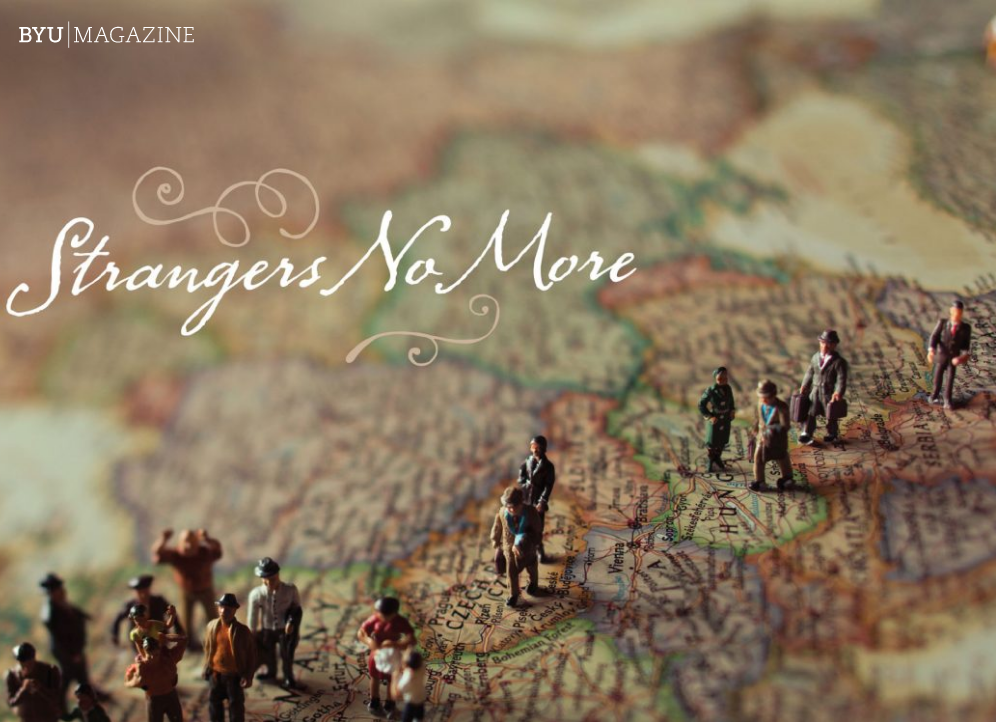
Written by Melissa Dalton-Bradford
Melissa published an article with BYU (Brigham Young University) Magazine about the nature of volunteer refugee work in central Germany. You can read the original article by clicking here.
Excerpt:
Eyes speak. That morning at the Limburg refugee camp, I heard volumes.“Guten Tag,” I said, tipping my head toward the man sitting alone at the end of the table. One of the dozens of refugees I’d met while volunteering as a German teacher in camps near Frankfurt, he had drawn my attention more than once.
He was hard to miss: his shoulders were nearly as broad as the table; his steady, weighted gaze from under the brim of his baseball cap gave him the air of a once-imposing but now-cowering animal, bruised from repeated blows.
His eyes had been watching, speaking while I worked. Two minutes earlier, a dozen or so children and I had been rowdily chant-singing “Kopf, Schulter, Knie, und Fuß” (“Head, Shoulders, Knees, and Toes”), our laughter like splashes of yellow in the slate-gray atmosphere of the camp. But after an hour of language instruction and songs, the kids had lost interest and run off the instant there was a lull.
Official Statement on the Detention of Refugees and Ongoing Community Violence
With another death in Minnesota and continued violence toward individuals and groups standing up for their communities, we acknowledge the profound fear and uncertainty people are feeling--not just locally, but across the country.
On top of this, there are reports that refugees invited and admitted to our country through the U.S. Refugee Admission Program are now being detained, meaning that our new friends and neighbors feel that fear most acutely.
Refugees have already fled violence and persecution once. They came here legally, seeking safety. In moments like these, we reaffirm our commitment to building communities where refugees and immigrants can live without fear. Where they can go to work, send their children to school, and build lives of dignity and belonging.
We call for due process, accountability, and humanity in all immigration enforcement operations. We call upon our leaders to demand the demilitarization of our neighborhoods and cities. And we call on all of us to continue the work of welcoming and protecting those who have been forcibly displaced from their homes.